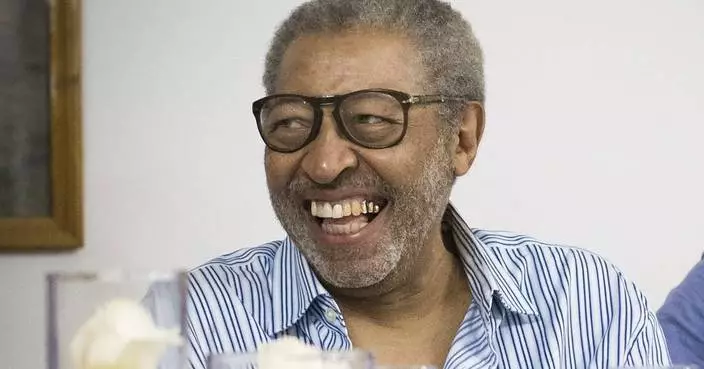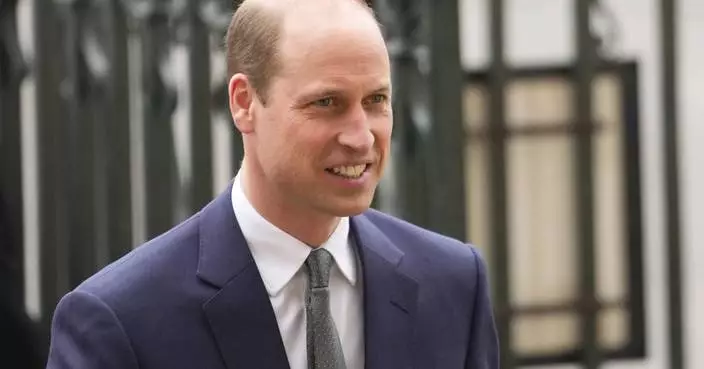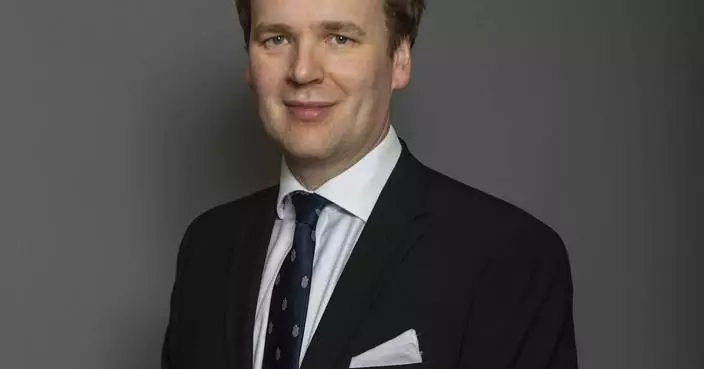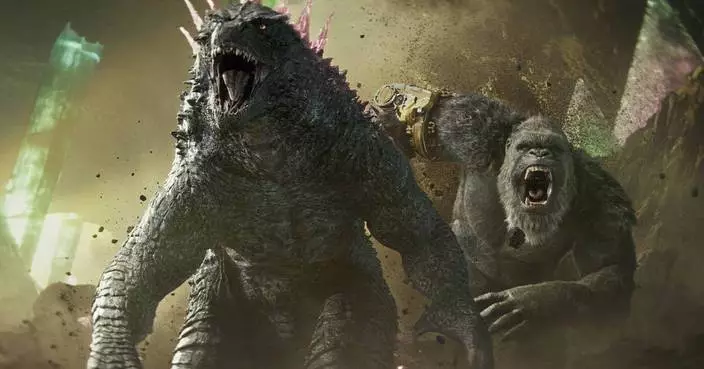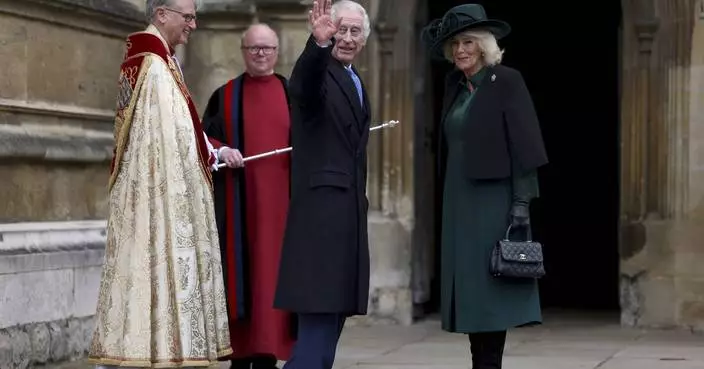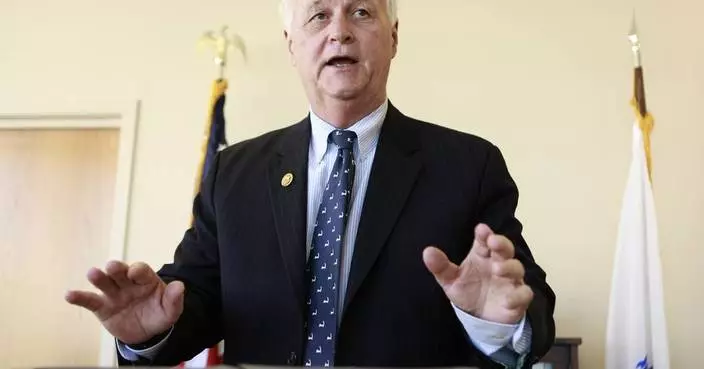Anita’s lad was “like a miniature version of a baby” – and is now thriving.
A nurse has relived her agony after being told her miracle baby – who was born no bigger than her hand just two days before the 24-week abortion limit – would not be resuscitated unless he had a heartbeat.
Click to Gallery
Anita’s lad was “like a miniature version of a baby” – and is now thriving.
She said: “People have abortions at 24 weeks and yet look at William, he is alive and kicking and a fully-formed baby.
At the moment, although most abortions in England, Wales and Scotland are carried out earlier, according to the NHS, the legal limit is 24 weeks, with the limit being raised in some exceptional circumstances, like the mother’s life being at risk, or the child being born with very severe disabilities.
Then at 5am, she woke again and knew at once that she was in labour.
Ringing her dad, Alan Bull, 62, who lived three miles away in Rochford, Essex, he advised her to wake her sleeping husband and call the hospital.
Suffering with polycystic ovary syndrome, causing sufferers to develop ovarian cysts because of hormonal imbalances making conception a challenge, she also had an underactive thyroid.
Luckily, he took a breath on his own and he was then given oxygen tubes to help him breath.
Anita continued: “I was scared to even touch him, because he was so tiny, just the size of my hand.
Transferred to the more specialist Royal London Hospital in east London that night, William was looked after in the neonatal intensive care unit for 45 days.
“We stayed with him as much as we could and read to him every day,” said Anita.
Already beating the odds as the only one of Anita Hyams’ three children to be conceived without fertility drugs, William, who weighed just 1lb 4oz when he was delivered at 23 weeks and five days, was almost four months early.
Now, seeing William grow into a healthy 16-month-old toddler, Anita, 38, of Southend, Essex – who sat by his hospital bedside with her police detention officer husband, Dan, 36, for four months before he was discharged – is concerned that the abortion limit should be lowered.
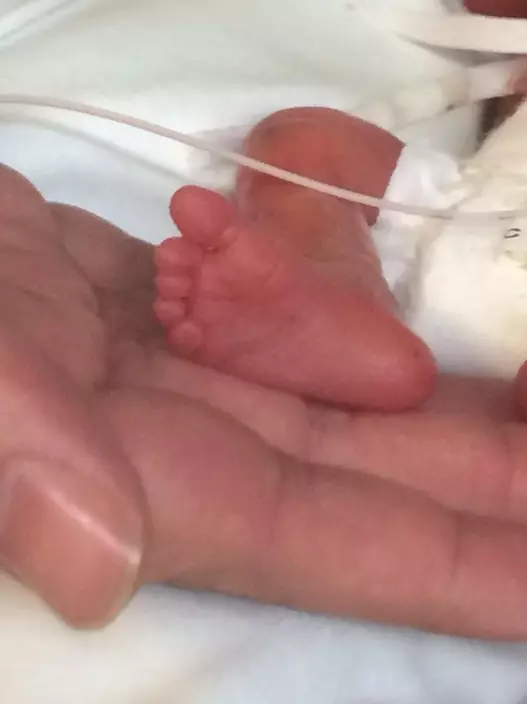
William's foot in is dad Dan's hand (Collect/PA Real Life)
She said: “People have abortions at 24 weeks and yet look at William, he is alive and kicking and a fully-formed baby.
“He is not quite as developed as other babies his age, but he is getting there, and he is alive.
“I was only 23 weeks pregnant when I went into labour and I knew that people could have abortions up to 24 weeks. After my experience, I think the abortion limit should be lower, or at least the limit should be lowered for when they will resuscitate a premature baby to 22 weeks.”
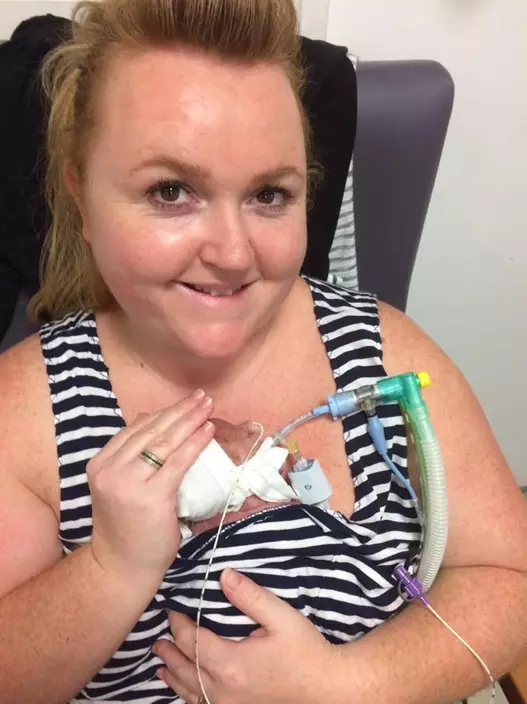
Anita and William (Collect/PA Real Life)
At the moment, although most abortions in England, Wales and Scotland are carried out earlier, according to the NHS, the legal limit is 24 weeks, with the limit being raised in some exceptional circumstances, like the mother’s life being at risk, or the child being born with very severe disabilities.
When Anita, who also has two daughters, Olivia, eight, and Marion, five, felt feverish after completing a long shift as an intensive care nurse on June 6, 2016, she thought nothing of it.
Going to bed, she woke in the early hours and, feeling achy and unwell, she took a paracetamol and hoped the pain would subside.
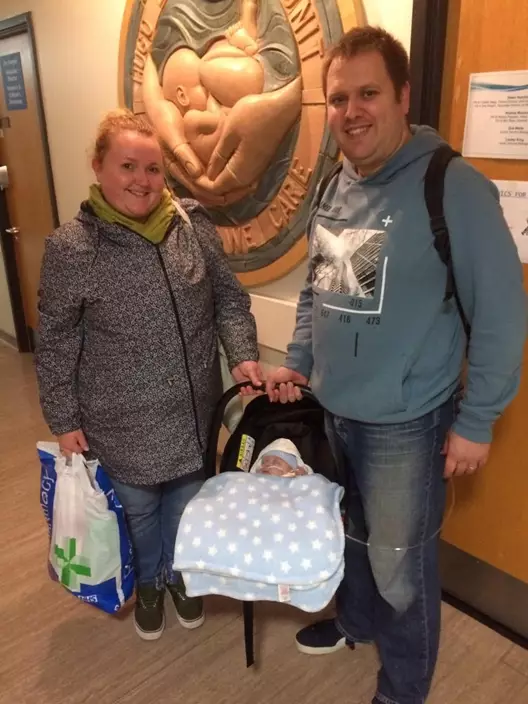
Anita and Dan with William when he was finally discharged (Collect/PA Real Life)
Then at 5am, she woke again and knew at once that she was in labour.
She said: “I’d already had two children, so knew exactly what the feeling was. I was having contractions.
“I went downstairs and walked around for a bit, praying I wasn’t having the baby.”
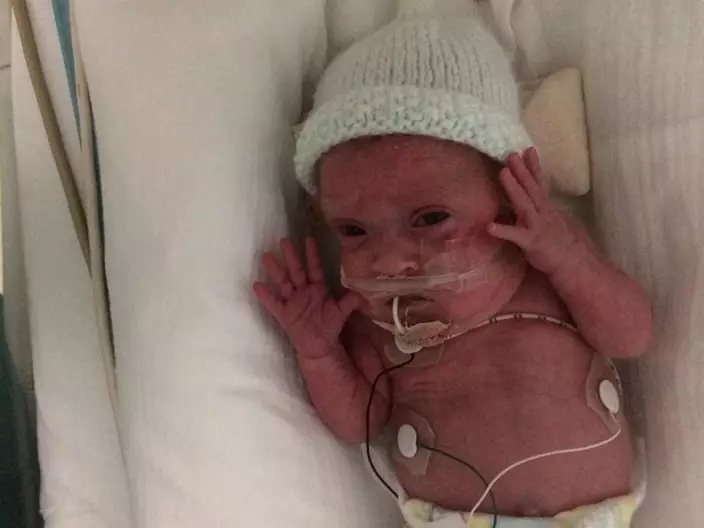
William at 70 days (Collect/PA Real Life)
Ringing her dad, Alan Bull, 62, who lived three miles away in Rochford, Essex, he advised her to wake her sleeping husband and call the hospital.
Leaving Alan to look after their daughters, terrified Dan and Anita drove to Southend University Hospital.
“We wanted this baby so badly, as I’d miscarried before,” Anita said, recalling how she had lost a child at nine weeks in December 2015 – making William even more precious.
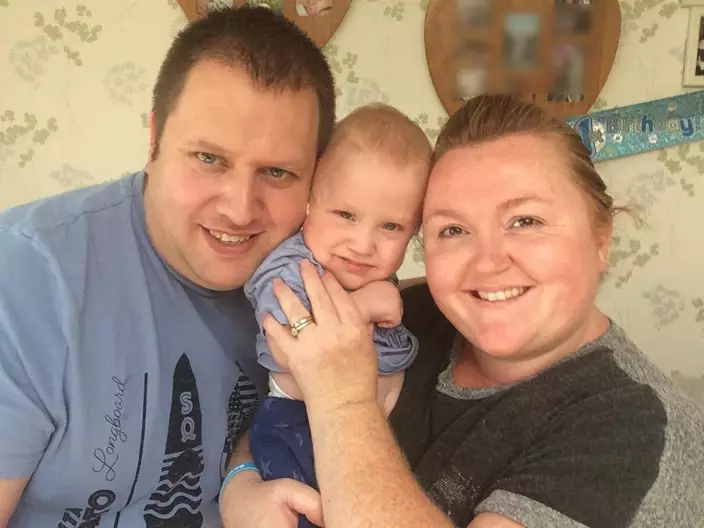
Dan and Anita with William aged one (Collect/PA Real Life)
Suffering with polycystic ovary syndrome, causing sufferers to develop ovarian cysts because of hormonal imbalances making conception a challenge, she also had an underactive thyroid.
Together, these conditions had made falling pregnant difficult, and she had taken the fertility drug metformin to improve her rate of ovulation before conceiving both daughters.
Already amazed to have conceived this time without assistance, when William Sidney Hyams arrived weighing just 1lb 4oz, – the equivalent of two thirds of a bag of sugar – at 1.41pm on June 7, she and Dan were astonished.
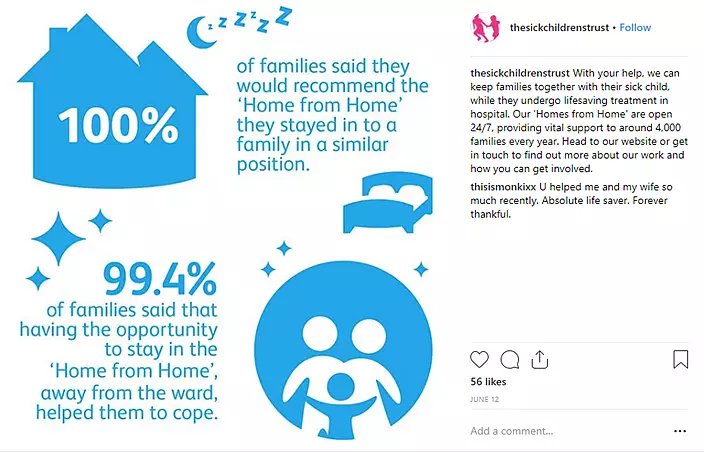
Luckily, he took a breath on his own and he was then given oxygen tubes to help him breath.
He was immediately whisked away to the special care baby unit, before Anita even had chance to see him.
“I saw William for the first time at three hours old,” she said.
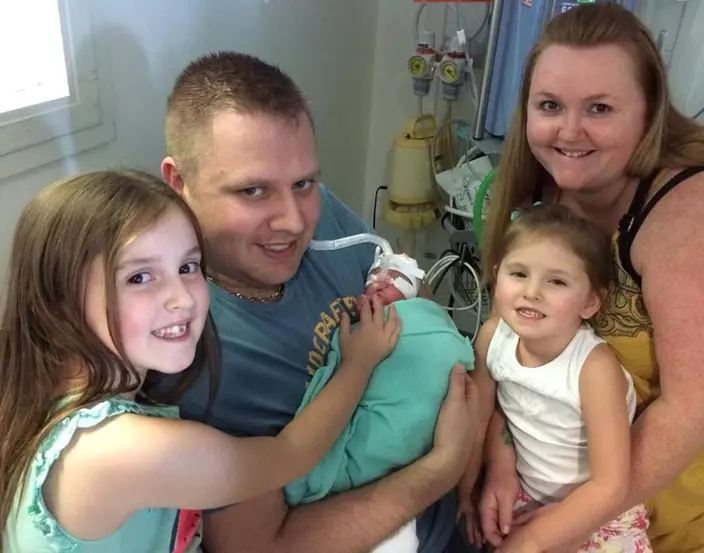
L-R Olivia, Dan, William, Anita and Marion (Collect/PA Real Life)
Anita continued: “I was scared to even touch him, because he was so tiny, just the size of my hand.
“But it was like looking at a little miracle. He was fully formed, but not completely developed.
“All his fingers and toes were there, he was just like a miniature version of a baby.”
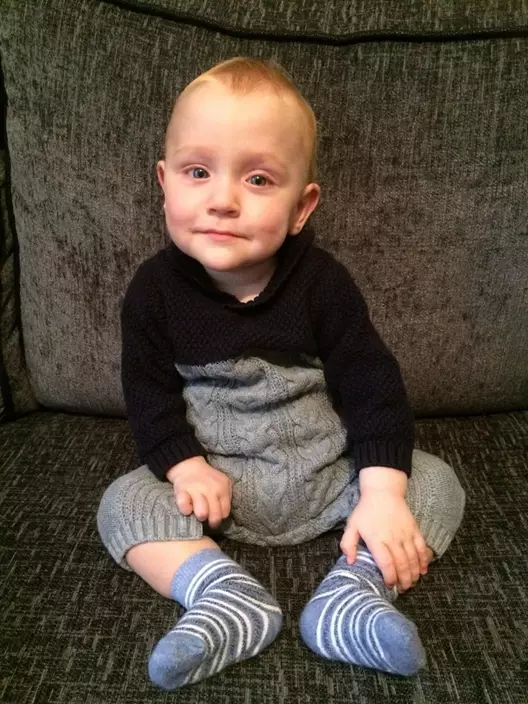
William now (Collect/PA Real Life)
Transferred to the more specialist Royal London Hospital in east London that night, William was looked after in the neonatal intensive care unit for 45 days.
Visiting their lad and watching him go from strength to strength every day, Anita, Dan and their daughters stayed in Stevenson House for the duration.
The free accommodation for families with unwell children is run by national charity The Sick Children’s Trust, which supports 4,00 children a year.
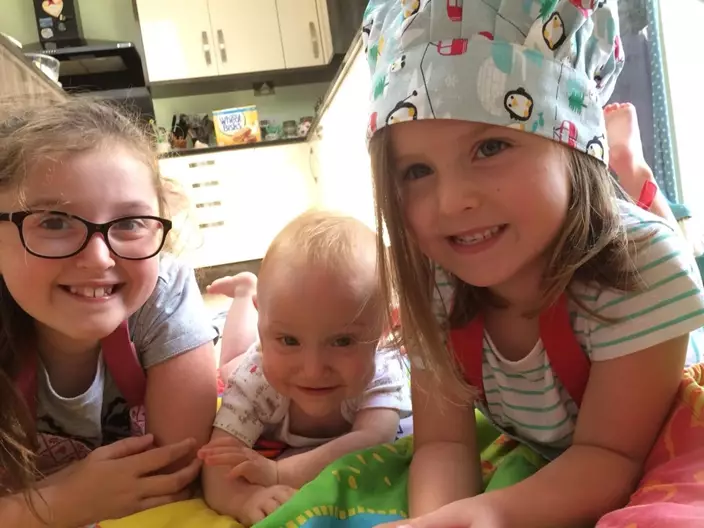
L-R Olivia, William and Marion (Collect/PA Real Life)
“We stayed with him as much as we could and read to him every day,” said Anita.
“He got stronger every day and, on August 31, was taken back to Southend University Hospital, as he had made so much progress.”
Eventually, the family took William home on October 7 -just eight days after his official due date of September 29.
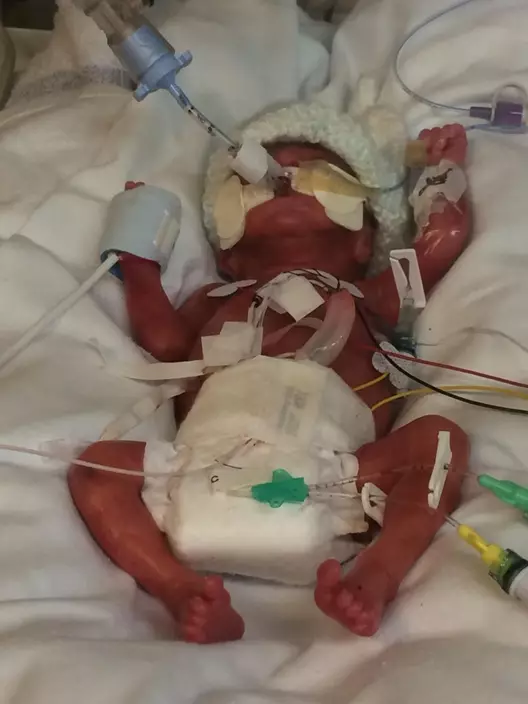
William at two hours old (Collect/PA Real Life)
Anita continued: “His sisters adore him and are like two extra little mummies to him.
“I still feel so emotional talking about it all. He is so full of smiles and life. He can sit up on his own, but can’t crawl just yet. I know he’ll get there, though.
“And I’m just so grateful that he’s here.”
For more information about The Sick Children’s Trust visit www.sickchildrenstrust.org
NEW YORK (AP) — #MeToo founder Tarana Burke has heard it before. Every time there’s a legal setback, the movement is declared dead in the water. A legal success, and presto, it’s alive again.
So Burke, who nearly two decades ago coined the phrase “Me too” from her work with sexual assault survivors, found herself again declaring after New York's highest court on Thursday overturned Harvey Weinstein’s 2020 rape conviction: The #MeToo reckoning is greater than any court case. It’s still there, and it’s working.
The most obvious proof, Burke said: “Ten years ago we could not get a man like Harvey Weinstein into the courtroom." The movement, she said, was responsible for that huge cultural shift — regardless of the Hollywood mogul's ultimate legal fate.
Also seeking to take the long view, following a legal setback that stunned many survivors and advocates, was Anita Hill, who famously testified against Clarence Thomas during his 1991 Supreme Court confirmation hearing, becoming the face of the fight against sexual harassment more than a quarter-century before the Weinstein case launched the #MeToo movement.
Alongside her academic career, Hill now heads the Hollywood Commission, which seeks to fight harassment in the entertainment industry. She sought on Thursday to reassure survivors that progress is real.
"I want those who are saddened by the New York Court of Appeal’s decision to know that no single legal ruling can ever match the tremendous progress we have made together in the movement against sexual violence,” Hill told The Associated Press in an email.
“The movement will persist,” she added, "driven by the truth of our testimonies. And changes to our systems and culture will follow.”
It was, of course, a rough morning for sexual assault survivors across the country, as Burke acknowledged at a hastily arranged Manhattan news conference following the court ruling with activists including Ashley Judd, one of the earliest Weinstein accusers.
In what Judd called “an act of institutional betrayal,” New York’s highest court, in a 4-3 decision, ordered a new trial, saying the first one had prejudiced Weinstein, 72, with improper rulings, including letting some accusers testify about allegations that weren’t part of the case. Weinstein will remain in prison, however, because he was convicted in Los Angeles in 2022 of another rape.
Among those who testified in New York was Dawn Dunning, a supporting witness, who told the court how during a business meeting Weinstein slid his hand up under her skirt and fondled her genitals.
Dunning told the AP through her attorney, prominent #MeToo lawyer Debra Katz, that she was “shocked” by Thursday's ruling and dealing with a range of emotions, including asking herself, “Was it all for naught?”
“It took two years of my life,” Dunning said. “I had to live through it every day. I had to live through the terror of confronting Weinstein. But would I do it again? Yes.”
She said that in confronting the producer, she had faced her worst fear and realized he had no power over her. And she was proud that her testimony helped other women earn some justice.
Katz said she had spoken to Dunning and other accusers — women who felt “gutted" — reminding them of the important role they’d played in the broader reckoning against sexual abuse and violence.
“They testified at great personal cost. ... It was life-altering for them,” Katz said. "And to feel like this was maybe all for naught is a very, very, bad feeling.”
Still, Katz felt certain Weinstein would be convicted in a new trial.
“Their testimony was invalidated by the court today due to legal technicalities,” Katz said. But “no one doubted the truth of what they testified to, or the courage of their testimony. And so while this is a setback in this case, I do believe that their testimony changed the world."
The testimony fundamentally altered how people view and react to issues of sexual assault in the workplace, she said.
“And their courage has grown beyond this case — people continue to come forward, people continue to support other victims who’ve reported sexual assault and violence, and I truly believe there’s no going back from that,” Katz said.
Echoing that view was Erika Rosenbaum, a Montreal actor who came forward with her own accusations against Weinstein in 2017, and has spent the years since then speaking to groups, especially young people, about sexual harassment and abuse.
“If anything, I feel like (#MeToo) is a movement that gets stronger all the time,” Rosenbaum said in an interview. “It is very much a movement of incremental steps and sharing of stories and holding each other up. And that does not change with a court decision ... Because this is very much a change of of culture. There are ups and downs, there are battles. But this is something that will keep going.”
Like her, many advocates saw the moment, however dispiriting, as an opportunity to call for a renewal of efforts to push the #MeToo message forward.
“Today’s decision does not erase the truth of what happened,” said Fatima Goss Graves, head of the Time’s Up Legal Defense Fund. It's important to remember, she said, “that one well known case does not define this movement. We are a force.”
Graves noted the fund has provided support for some 9,000 people with sexual harassment complaints since 2018, and has funded 300 lawsuits. The fund is run by the National Women's Law Center in Washington; the broader Hollywood-based group, launched in 2017, shifted all its resources to the fund in January 2023.
Burke stressed in an interview that while legal advances are necessary for progress, “the judicial system has never been a friend of survivors. And so it’s the reason why we need movements, because movements have historically been what has pushed the legal system to do the right thing.”
Burke said she spent the morning speaking to accusers, including actor Annabella Sciorra, who testified at the 2020 trial that Weinstein raped her.
“I can understand how devastating and disgusted and angry, just the range of emotions that so many of them must feel,” Burke said. “And I hope they understand for those of us survivors who will likely never see a day in court, that they are still heroes to us.”
Burke, who has spoken out about her own past as a survivor of abuse, added she could never imagine facing her own perpetrator in court.
“So just the fact that they got to do that, to bring a person, a man like Harvey Weinstein to account for his crimes, is incredible," she said.
Associated Press journalist Alexandra Olson, a member of the women in the workforce team, contributed reporting. The Associated Press’ women in the workforce and state government coverage receives financial support from Pivotal Ventures. AP is solely responsible for all content. Find AP’s standards for working with philanthropies, a list of supporters and funded coverage areas at AP.org.
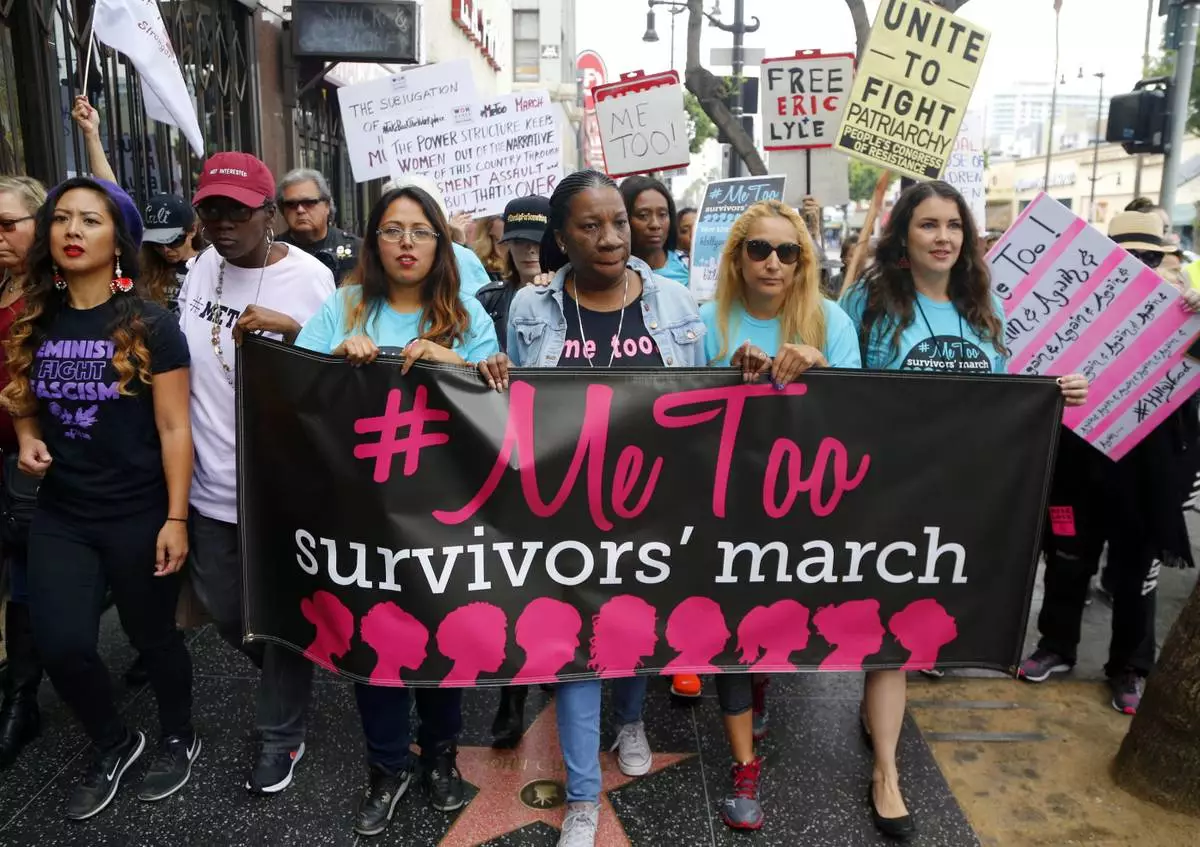
FILE - In this Nov. 1, 2017, file photo, Tarana Burke, founder and leader of the #MeToo movement, marches with others at the #MeToo March in the Hollywood section of Los Angeles. (AP Photo/Damian Dovarganes, File)
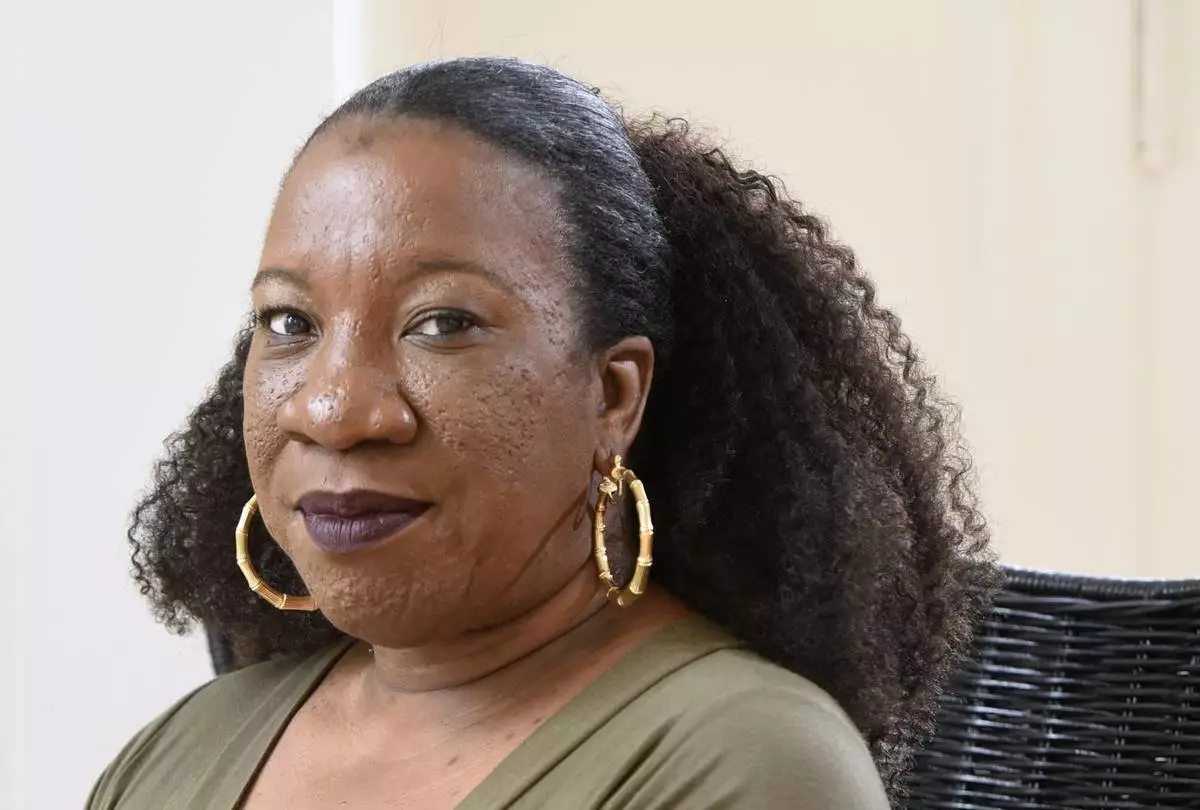
FILE - Tarana Burke, founder and leader of the #MeToo movement, sits in her home in Baltimore on Tuesday, Oct. 13, 2020. (AP Photo/Steve Ruark, File)
















